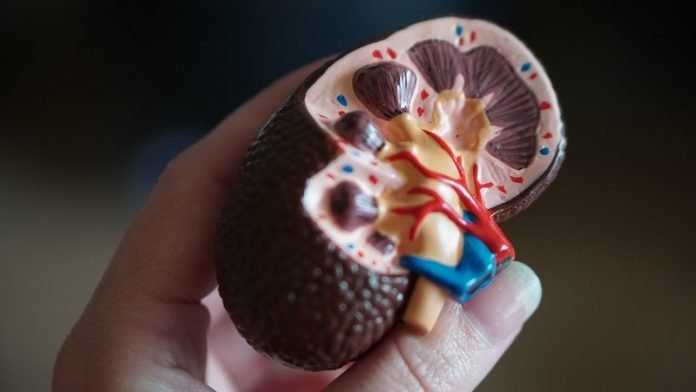
Stroke and chronic kidney disease are both difficult to handle in their own rights, but having a stroke when your kidneys are already poor is more than just double the trouble.
In a new study from the National Cerebral and Cardiovascular Center (NCVC) in Japan, researchers found that excessive blood pressure reduction for stroke treatment can have dire consequences when kidney function is low.
Intracerebral hemorrhage is a threatening type of stroke. It is caused by bleeding within the brain tissue itself. Abnormally high blood pressure is usually found in the disease.
Previous studies have shown that intensive blood pressure reduction in stroke patients can improve their health outcomes.
However, excessive blood pressure reduction can damage the kidneys, especially in people who already have chronic kidney disease.
In the study, the team used data from stroke patients within 4.5 hours of onset of stroke.
They were assigned to the intensive antihypertensive group (systolic blood pressure 110-139 mmHg) or the standard antihypertensive group (140-179 mmHg) and maintained in the target blood pressure range for 24 hours.
The researchers divided patients into three categories, including normal function, mild loss of function, and decreased kidney function.
They found that the rate of death or disability after stroke was almost 50% in patients with decreased kidney function, compared with about 32% in patients with normal kidney function.
Among patients with decreased kidney function, the odds of death or disability were higher in patients treated with intensive blood pressure-lowering compared with those with standard blood pressure control.
The team says although intense lowering of blood pressure can reduce the risk of hematoma expansion and prevent brain damage after stroke, it can harm those with decreased kidney function.
At present, kidney function should be considered when deciding the optimal blood pressure range for each patient.
If you care about stroke, please read studies about this brain problem can increase risk of stroke for up to five years and findings of this therapy boosts recovery from stroke and dementia.
For more information about stroke and your health, please see recent studies about eye problems may signal higher risk of dementia, stroke, early death and results showing that adding these drugs to statins may lower stroke risk.
The study is published in Neurology. One author of the study is Kazunori Toyoda.
Copyright © 2021 Knowridge Science Report. All rights reserved.



